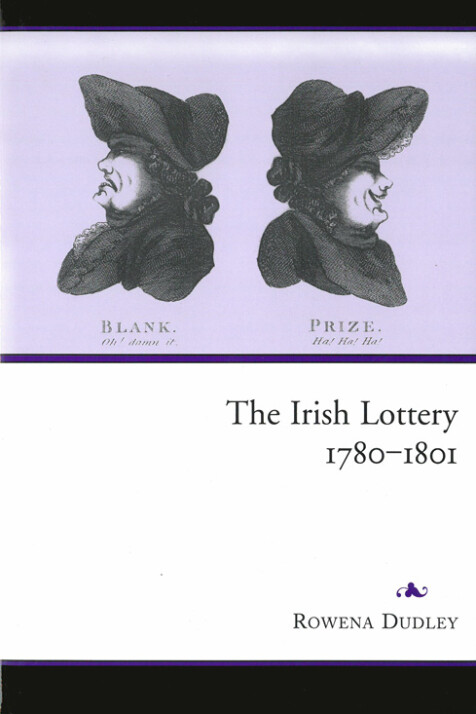The Irish Lottery, 1780–1801
Rowena Dudley
Lotteries were a well-established part of 18th-century life when, in 1780, the Irish government initiated the first state-controlled lottery to raise much-needed revenue. Inspired by its English counterpart, the lottery was well publicized; the draw, which took several weeks to complete, distributed a substantial prize fund in both large and small prizes. The moderately priced tickets and the century's fascination with gambling encouraged all levels of society to participate. Interest, at fever pitch during the draw, was stimulated and sustained throughout by the newspapers and the resourcefulness of ticket sellers whose ingenious schemes bolstered ticket sales. The lottery's usefulness as a money-raising device ensured its survival for twenty-one years. A plethora of regulations, designed to suppress criminal activity, failed to eradicate fraud although the integrity of the lottery itself was never questioned. The lottery ended with the Union, after 1801 Ireland's financial concerns were decided in London.
Rowena Dudley, a graduate of Trinity College Dublin, is an independent scholar.

